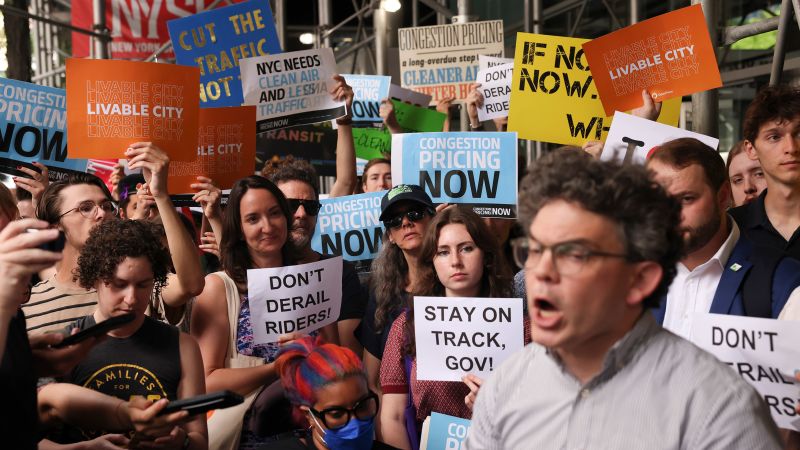New York was on the brink of becoming the first city in America to adopt congestion pricing, a system aimed at reducing traffic, air pollution, and funding public transit. However, Governor Kathy Hochul decided to shelve the program at the last minute, citing concerns over unintended consequences and the potential harm to the working class. While a $15 toll might discourage some drivers from entering congested areas, the toll revenue of $1 billion a year pales in comparison to the costs associated with traffic congestion.
The decision to delay congestion pricing has been met with disappointment from many businesses that would benefit from the improved traffic flow and reduced pollution. The Partnership for New York City, a nonprofit representing local businesses, argues that the toll revenue would be far outweighed by the costs of lost productivity, overtime, fuel expenses, and environmental and health issues resulting from excess traffic congestion. The plan, now on hold indefinitely, was seen as a positive step for New Yorkers, but some suburban drivers viewed it as an inconvenience to their perceived right to bring a car onto the island.
Congestion pricing would require drivers to pay $15 to enter Manhattan’s most congested areas during peak hours, with the goal of discouraging congestion while ensuring that businesses do not suffer. The $1 billion in annual revenue generated from the tolls would be used to fund much-needed improvements to the city’s bus and subway systems, benefiting the millions of people who rely on public transit every day. Hochul’s opposition was framed as an issue of economic recovery post-pandemic, with concerns about the impact on working- and middle-class households.
Transportation Alternatives, an advocacy group in support of congestion pricing, criticized Hochul’s decision to delay the program, describing it as a setback for New Yorkers who rely on public transit and face challenges with delays, traffic, and accessibility. The delay was viewed as a political calculation rather than an economic one, with suggestions that the decision was influenced by political considerations in regions where congestion pricing is unpopular. Despite the potential benefits of congestion pricing for traffic management and public transportation funding, the decision to delay the program has raised questions about its future implementation and impact on New York City’s infrastructure and residents.













